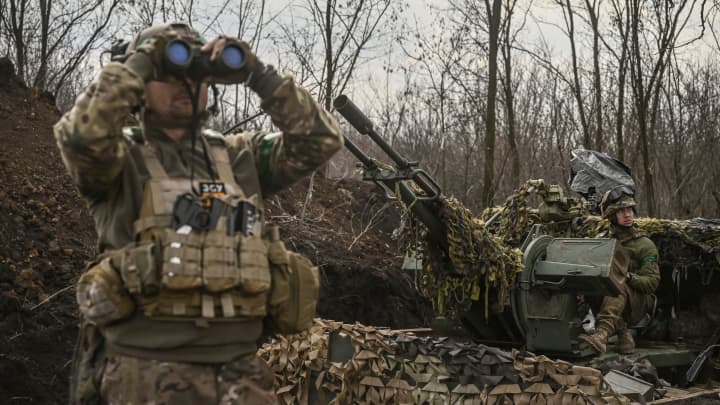Two years ago, when Russia launched its full-scale invasion of Ukraine, I was among the many long-time observers of the Kremlin who got it wrong.
Few could fathom why Vladimir Putin, Russia’s calculating leader, would embark on such a risky military adventure, especially when the mere threat of a Russian invasion was already yielding results.
In June the previous year, as Russian forces massed near Ukraine, US President Joe Biden met Putin at a superpower-style summit, describing the US and Russia as “two great powers” elevating the Russian leader after previous US administrations had sought to downplay Russia’s influence.
In the days before the 2022 invasion, Washington offered a “pragmatic evaluation” of Moscow’s security concerns, signalling openness to compromise.
Pitching Russian forces against one of the region’s biggest standing armies seemed uncharacteristically reckless and, therefore, unlikely.
There were others, though, who rightly saw the invasion as inevitable, better reading the Kremlin’s intentions, and confidently predicting a swift Russian victory at the hands of Moscow’s vastly superior forces.
Two years on, I like to think that those of us who doubted the Kremlin’s resolve were wrong for the right reasons.



